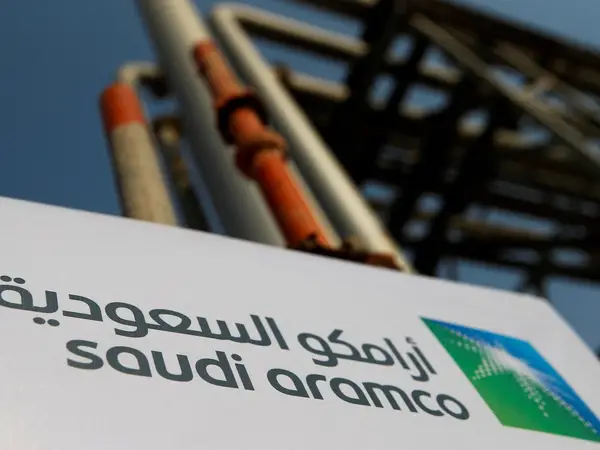Saudi Arabian Oil Company and TotalEnergies have signed an $11 billion contract to build a petrochemicals complex near an offshore field shared by Iran, which is under US sanctions and isolated.
The joint offshore field -- called Arash in Iran and Durra by Saudi Arabia and Kuwait -- was discovered in 1967 and is estimated to have a total proven reserves of around 310 million barrels of oil and 20 trillion cubic feet of gas. Iran claims any development without its consent breaks international laws, 40 percent of the field located in its territorial waters.
Saudi Aramco Gulf Operations Company signed a Memorandum of Understanding in December with Kuwait Gulf Oil Company (KGOC) to develop the joint Durra gas field, Saudi state news agency (SPA) reported.
The development aims at producing 1 billion cubic feet of gas and 84,000 barrels of liquefied gas per day, according to the Kuwaiti state news agency.
The $11 billion "Amiral" complex, a future world-scale petrochemicals facility expansion at the SATORP refinery in the city of Jubail in the kingdom's Eastern Province, is the latest announcement which will likely irk Iran.
Criticizing the Iranian government’s inaction vis-a-vis the project, Chairman of the Board of Directors of the Association of Iranian Oil and Gas Drilling Companies Hedayatollah Khademi told ILNA on Sunday, “It seems that we have surrendered the joint fields to the neighbors.”
Highlighting the fact that Riyadh has significantly developed and extracted from joint fields such as Arash/Durra, Farzad-A, Farzad-B, and Forouzan despite the fact that Iran dug the first exploratory wells in the fields. “We have not done anything," he said, accusing the regime of sitting idle in the face of the encroachment.
In March last year, Kuwait and Saudi Arabia started projects to extract gas from the field. Iran's foreign ministry spokesman at the time, Saeed Khatibzadeh said that as Iran has a share in the field it must be included in any action to operate and develop it. "The Arash/Al-Durra gas field is a joint field between Iran, Kuwait and Saudi Arabia. Parts of it are located in areas between Iran and Kuwait whose water boundaries have not been defined,” he said.
The new deal, which had been wrangled over by Aramco and TotalEnergies since 2018, will enable the Saudi Arabia and Kuwait not only to extract from the field but also process the gas and condensates to petrochemical products, which yield even higher profit, a kick in the teeth for the regime which only this year signed a detente with Saudi to resume diplomatic ties.
In 2001, Iran launched projects to extract gas from the field, but Kuwait threatened to file lawsuits at international bodies. The projects stopped after the Emir of Kuwait traveled to Iran and met with the then president Mohammad Khatami. In 2013, Iran announced that projects were restarted but they produced no results.
Integrated with the existing Saudi Aramco Total Refining and Petrochemical (SATORP) refinery in Jubail, the ‘Amiral’ complex will house the largest mixed-load steam cracker in the Persian Gulf region, with a capacity to produce 1.65 million tons of ethylene and other industrial gases annually.
The project, whose commercial operation is targeted to start in 2027, is expected to attract more than $4 billion in additional investment in a variety of industrial sectors and create about 7,000 jobs directly and indirectly in Saudi Arabia.
